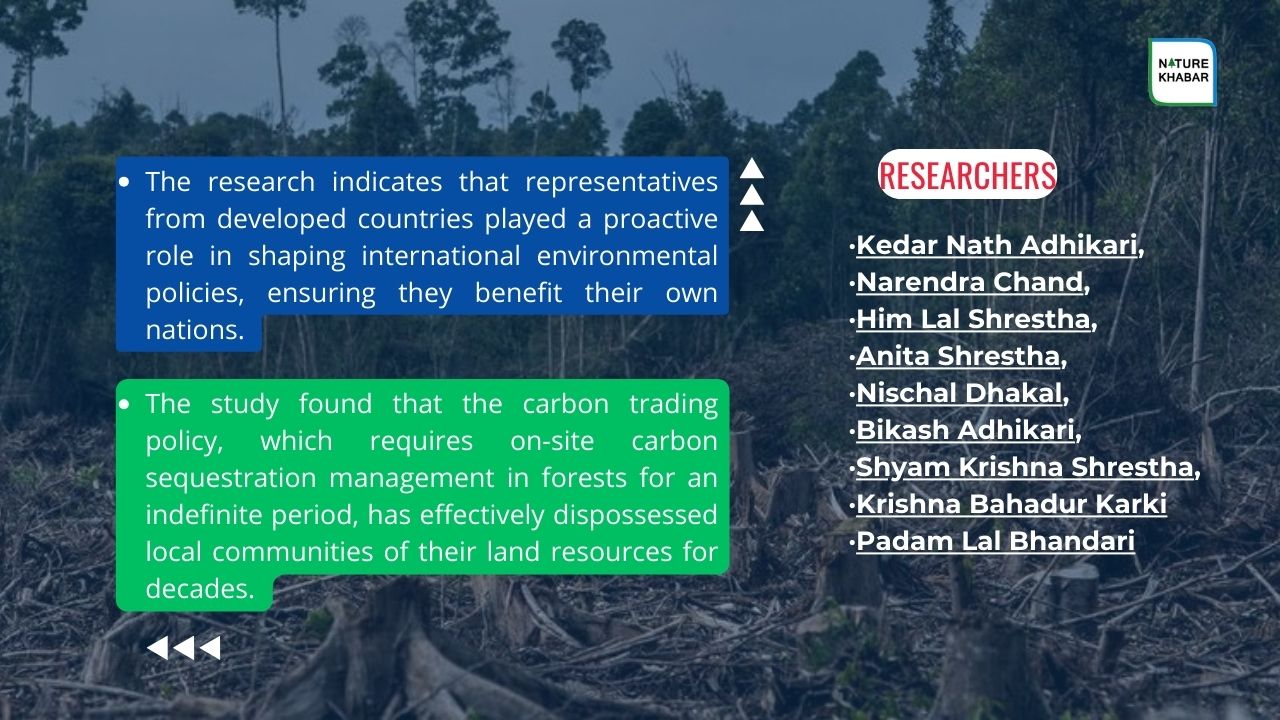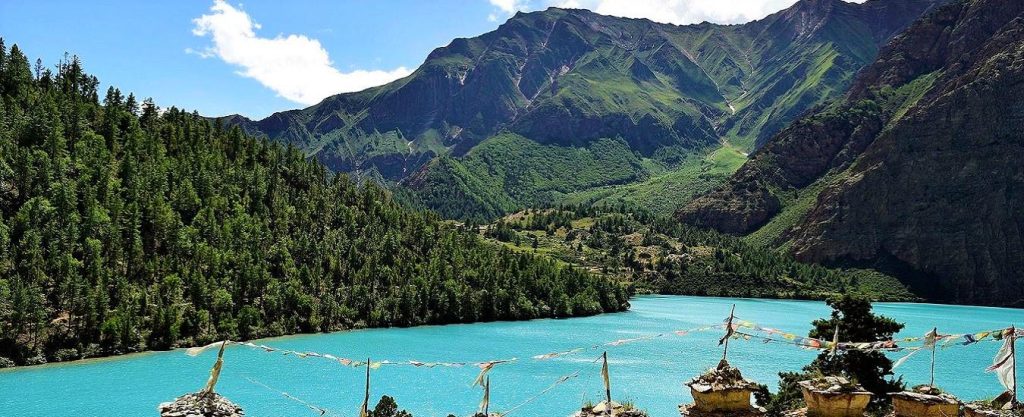Powerful Nations Seize Natural sources of Developing Countries, Study Reveals
- Nature Khabar

Kathmandu - In a groundbreaking study, researchers have unveiled the intricate international politics and processes that have led to the dispossession of public land resources in developing countries, including Nepal, for the benefit of developed nations. The study sheds light on how international environmental policies and aid agencies have served as tools for powerful countries to exert control over the land resources of weaker nations without resorting to military force.
Public lands, encompassing forests and community pastures, have traditionally been vital for local livelihood, social security, and environmental conservation in many developing countries. However, the recent shift in management of these resources to offset the greenhouse gas emissions of developed countries has led to a myriad of local challenges. These include livelihood constraints, social crises, human casualties, biodiversity degradation, and water scarcity.
The research indicates that representatives from developed countries played a proactive role in shaping international environmental policies, ensuring they benefit their own nations. By providing funds and expertise through international aid agencies, these countries influenced the decisions of governments and stakeholders in institutionally weak countries like Nepal. Tactics included propagating false environmental crises, forming alliances with influential international agencies, and offering free technical support.
Furthermore, the study found that the carbon trading policy, which requires on-site carbon sequestration management in forests for an indefinite period, has effectively dispossessed local communities of their land resources for decades. The one-off payment system was identified as a politically constructed condition favoring the powerful buyer countries.
International aid agencies employed various strategies, from misinterpreting resource management issues to forming organizations parallel to government bodies. The allure of foreign aid led many local stakeholders, including government officials and academicians, to propagate misleading information and act against the interests of local communities.
Historically, public lands were a boon for mountain communities, especially marginalized groups like women, retirees, and the differently-abled. However, environmental agencies, under the guise of protecting future generations, have turned these resources into a curse for environmentally-conscious local communities, primarily indigenous ethnic groups.
Given the detrimental effects on local communities, the study suggests that developing countries critically assess offers from international organizations. For Nepal, a radical overhaul of current forest management structures is imperative to address issues like emigration, rural deculturalization, and degradation of local heritage. The study also recommends a 10-year suspension of international environmental agency activities in the country to break the cycle of poor governance.
However, the chances of implementing these suggestions remain slim due to global power dynamics. Grassroots social movements, particularly those led by indigenous ethnic community leaders, might offer a glimmer of hope against the organized oppression by powerful entities with malicious intentions.
The research primarily focuses on the key policy processes related to land and forest resource exploitation in the name of climate change mitigation. The authors emphasize that approaches might vary across regions, and future cross-country studies could offer a more comprehensive understanding of the land-grabbing issue.
Note: This article is based on the findings of a recent study that delves into the international politics and processes surrounding the dispossession of public land resources in developing countries.
Click here to see the full details of the study.
or
You can view or read the full details of the study in PDF here.





Feedback